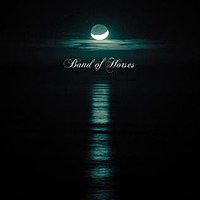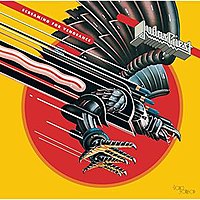
Band: Tortoise
Album: Tortoise
Best song: "Tin Cans & Twine."
Worst song: Nope.
Let's get one thing out of the way first: Tortoise has been my favorite band since, basically, I first started listening to them at age 15. I've claimed other bands as co-favorites (currently, Mogwai and Pink Floyd), but one has endured. When a friend tried to convince me -- after a particularly great Broken Social Scene show in Baltimore -- that Broken Social Scene is "the best band ever," my first response was "Nope. Tortoise."
---
I'm currently in a mixtape club run by a friend at her company. I don't really participate fully; Because I don't work for her company, I am not able to enjoy the other mixtapers' mixes (they all reside on a common server at said company). The mixes are themed.
Part of my own purpose of being in the mixtape club is that same purpose with which I used to be in college radio. For whatever reason, I was fighting the fight of getting independent music out there. I wanted to convince everyone that the bands I like are awesome and you should hear them, too.
(After all, a large part of the joy in loving music is being able to share it with people.)
I've burned people mixes with Cat Power on them. I've lent out countless Black Sabbath and King Crimson CDs. I've gifted the Raconteurs album through iTunes. Twice.
I stopped doing that with Tortoise a while back. I'm not really sure why.
---
In high school and college, I was kind of a Thrill Jockey Records whore. I would review just about anything that came out on the label and I owned (and wore) a Thrill Jockey knit hat. I have one now, but it resides on a glass head in my kitchen.
That changed a bit towards the end of my time at KCOU when Bobby Conn started releasing records on the label. Nothing against Conn; I just never saw his connection to the post-rock awesomeness that the label had nurtured.
In a weird way, Thrill Jockey always meant something greater to me. Unlike Touch & Go records (probably the greatest Chicago label), Thrill Jockey's roster was -- in my mind, but also largely in practice -- all part of one big family. Either musically (bands like Rome and Oval) or incestuously (many members were part of multiple bands), you knew what you were going to get. Like Sub Pop (grunge) in Seattle or Polyvinyl (second-wave emo) in Champaign, Thrill Jockey's post-rock closeness was incredibly comforting to me.
It might have been youthful zeal. It might have been the fact that Tortoise and The Sea and Cake -- two bands I still adore -- are both TJ bands and have never disappointed me with an album.
---
Make no mistake about it, though. Post-rock is not for everyone and to assume that -- as I did when I was constantly pushing Millions Now Living Will Never Die on people -- everyone I knew would like it was foolish.
The outside characterization of the label mostly backs this up. Because of the laconic nature of the genre -- bass-heavy music and no lyrics will do that to you -- you don't often see people get worked up about the Tortoises, Eleventh Dream Days and Isotope 217s of the world.
In Pitchfork's photo essay recounting TJ's 15th anniversary show weekend, that view is reinforced, basically:
Other bands are best kept as friends. Your heart may not skip a beat at the mention of their names, a missed show here and there won't make you cry, and perhaps you haven't quite gotten around to hearing that latest album, but that's okay, because you can commit to bands like this for life. They're consistent, reliable, and, as with any true friend, they have nothing to prove; the respect and admiration you and these bands share for one another is implicit. They've sorta always been there, too, and you get the feeling they always will be. These are the kind of bands, by and large, that populate the Thrill Jockey roster.
So you won't find many MySpace profiles gushing OMG I <3 SEA+CAKE x 1000000!!!!!11, but you can, it seems, always count on a sea of serene faces at any Sea and Cake show.
I guess I was/am that guy with Tortoise.
---
As I've explained, my album projects are mostly masturbatory. And with that in mind, Tortoise tracks my own music tastes throughout high school.
When I was a freshman in high school, I was just getting into underground (or "alternative," as it was called then) music. It started with Nirvana, which led me to Black Flag and the Meat Puppets. While I enjoyed all this stuff, I was something of a music omnivore. My favorite bands at the time were the Who and the Clash -- reflecting my punk rock attitude and youthful angst. Also, I was a drummer at the time.
For some reason, I was under the impression that provincialism was the best way to get deep into underground/indie rock. (It probably has to do with the fact that Chicago is a deeply provincial place. Being the capital of the Midwest has that effect on those who live there.) I had a friend, Mike. Mike's brother was in a band who had lived nearby (or maybe in the same building?) as this drum-heavy band called "Tortoise." Mike had explained something about how great they were and that I should check them out.
So I did. I bought the first Tortoise CD from Borders and out of it fell a little CD-sized insert that was a Touch & Go distributed labels mail order catalog. The rest, as they say, is history.
---
I was talking to my late best friend about 18 months ago about my favorite albums of all time and I'd mentioned the difficulty in choosing a Tortoise record to be on the list. The conversation went as such:
Him: TNT, huh? I'm surprised to see that one at the top
Me: Yeah, that's kind of an intellectual pick more than anything. Because, really, the top five could be all Tortoise records.
Him: Yeah. I mean, obviously you had to have a Tortoise record up there somewhere, but I guess I was just surprised to see you picked TNT. I would have thought you would have picked Tortoise.
Me: And I'm finding that I like all of the Tortoise albums about the same, for different reasons. TNT, I think, is the perfection of the term "post-rock" in that no songs follow the standard rock n' roll form, really.
That's not incorrect, but, every one of the band's albums is ultimately great. TNT is wonderful in its differing forms of the genre. The title track is a sprawling, textured beauty. "I Set My Face to the Hillside" is a harmonized shuffle dance thing. "The Equator" is electronic and moody, while "The Suspension Bridge at Iguazú Falls" features a gorgeous guitar march.
Similarly, It's All Around You features one of my favorite songs of all-time, the album's title track. Brimming with complex structures and a strong melody, "It's All Around You" has the best drum lines of any song. Ever. Millions has the soundtrack vibe of "Glass Museum" and the syncopation of "The Taut and the Tame." Standards is progressive and evocative, from the cacophony of "Seneca" to the rotating drums and guitar lines of "Monica."
But, the album that got me into the band remains their debut.
Indeed, I can't really, in a coherent way, explain why Tortoise is so great. Like Mogwai -- another mostly instrumental band -- it's nearly impossible to discern irony and meaning from the band's titles and songs. Millions Now Living Will Never Die is named after a Jehovah's Witness phrase from the early 20th century.
And it could easily be said that Tortoise (and post-rock, in general) can be seen almost entirely as background music. I don't dispute this; a lot of post-rock is mellow and slow. But, it's also complex, thematic and, ultimately, emotional.
Takin as much from Can and Neu! as it does from Coltrane and Miles Davis, Tortoise is what jazz sounds like through a modern rock musician's filter. Named after the famous guitarist, "Ry Cooder" is a seven-minute jazz romp built on a vibraphone and bass lead line. "Cornpone Bunch" is quick and shuffling with an additional percussion line hitting the downbeats. "Spiderwebbed," complex and layered, is repetitive in a familiar way, again with the bass as the centerpiece. "Night Air" is the band's only album song with vocals -- an early cover of Freakwater's "Lonesome Sound" appears on one of the band's early singles -- and dense and wet. With an accordiorgan line providing the backbone, the low-in-the-mix vocal track is growly and dark.
Despite no lyrics, "Tin Cans & Twine" is, to me, the picture of emotion. It's melancholy and moody with an ever-present lament of a bassline. The guitar comes in sparingly, only to accentuate the depth of the song, while a Moog provides a backdrop.
Only when the drums, guitar and bass come together does the song reveal its optimism. In their synchronicity do the parts reflect a hope overcoming the song's beginning. It's the daybreak after the storm, the lessons learned from defeat. It is, indeed, my favorite song by the band and one of my favorites by any band.
--
As mentioned, I cannot write about albums I truly love without sounding like a goddamned idiot and, for that, I apologize. Please, just find someone with a Tortoise album and borrow it. Or go and buy one from the Thrill Jockey store. Or on iTunes. It's not rock and roll and it's not jazz. It's not post-rock in the definition so often cited by idiots (rock music without vocals), but rather moving past rock.









